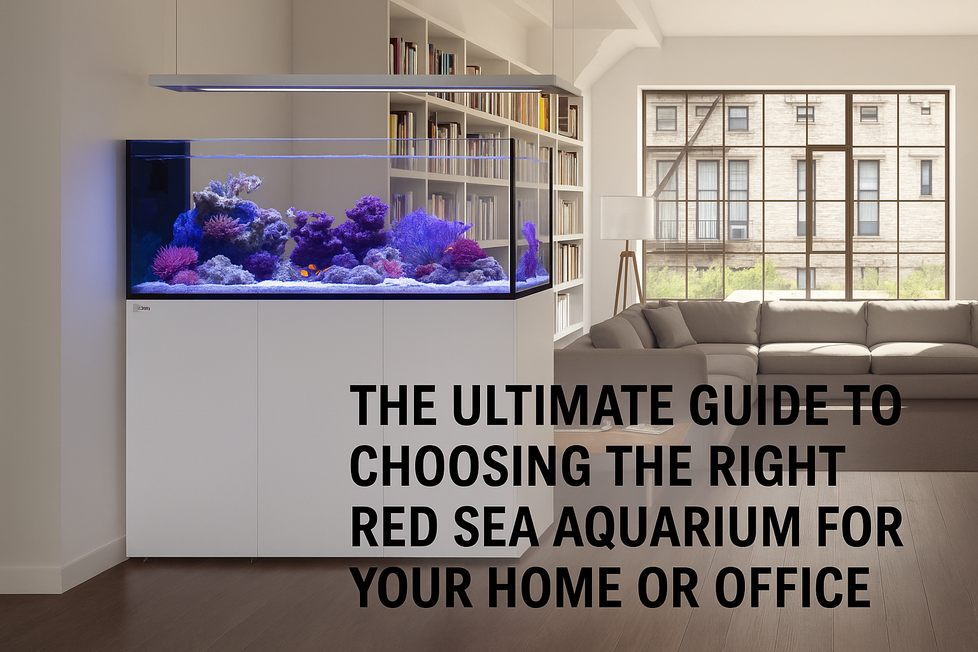Maintaining the right alkalinity levels is essential for a healthy and thriving reef tank. Alkalinity, also known as carbonate hardness (KH), plays a crucial role in stabilizing pH levels and supporting the calcification process for corals and other marine invertebrates. In this blog post, we will explore the importance of alkalinity in a reef tank, the causes of alkalinity fluctuations, their effects on marine life, and effective solutions to maintain optimal alkalinity levels. We’ll also provide links to top products available at Charterhouse Aquatics to help you manage your reef tank's alkalinity effectively.
What is Alkalinity (KH)?
Alkalinity, or carbonate hardness (KH), measures the concentration of carbonate and bicarbonate ions in water. These ions act as buffers, helping to maintain stable pH levels by neutralizing acids. In a reef tank, the ideal alkalinity range is between 7-11 dKH (degrees of carbonate hardness).
Causes of Alkalinity Fluctuations
1. Biological Activity
The metabolic activities of fish, corals, and other organisms can consume carbonate ions, leading to a drop in alkalinity. Photosynthesis by corals and algae also affects alkalinity levels.
2. Water Changes
Using water with different alkalinity levels during water changes can cause fluctuations. It's essential to match the alkalinity of the new water with the tank water.
3. Poor Quality Salt Mix
Using a low-quality salt mix that lacks adequate buffering capacity can result in insufficient alkalinity levels in your reef tank.
4. Overconsumption by Corals
Corals and other calcifying organisms consume carbonate ions for skeletal growth. Rapid coral growth can deplete alkalinity levels more quickly than expected.
Effects of Alkalinity Fluctuations on Marine Life
1. pH Instability
Low alkalinity can lead to unstable pH levels, causing stress to fish, corals, and invertebrates. Stable pH is critical for the overall health of marine life.
2. Impaired Coral Growth
Corals rely on adequate alkalinity for calcification, the process of building their calcium carbonate skeletons. Low alkalinity levels can impair this process, leading to stunted growth and weaker structures.
3. Increased Susceptibility to Diseases
Fluctuations in alkalinity can weaken the immune systems of marine organisms, making them more susceptible to diseases and infections.
Solutions to Maintain Optimal Alkalinity Levels
1. Regular Testing
Frequent testing of alkalinity levels is essential to detect and address fluctuations promptly. Use a reliable test kit to monitor alkalinity levels regularly.
Recommended Product: Salifert Alkalinity Test Kit
2. Use High-Quality Salt Mix
Ensure you use a high-quality salt mix that maintains proper alkalinity levels when performing water changes.
Recommended Product: Red Sea Coral Pro Salt
3. Alkalinity Buffers
Consider using alkalinity buffers to maintain stable alkalinity levels. These products help replenish carbonate ions and prevent drops in alkalinity.
Recommended Product: Seachem Reef Builder
4. Dosing Systems
For advanced reef tanks, automated dosing systems can be used to maintain consistent alkalinity levels by dosing carbonate solutions regularly.
Recommended Product: D-D P1 Pro Dosing Pump
5. Regular Water Changes
Perform regular water changes with water that matches the alkalinity of your tank to prevent fluctuations.
6. Monitor Coral Growth
Keep an eye on the growth rate of your corals and adjust alkalinity dosing accordingly to meet their increased demand for carbonate ions.
Conclusion
Understanding and maintaining stable alkalinity levels in your reef tank is crucial for the health and well-being of your marine life. By identifying the causes of alkalinity fluctuations and implementing effective solutions, you can create a stable and thriving reef environment. Explore the range of products available at Charterhouse Aquatics to support your reef tank maintenance and ensure optimal water quality.
For all your aquarium needs, trust Charterhouse Aquatics to provide top-quality products and expert advice. Invest in the right tools and solutions to keep your reef tank healthy and vibrant.


